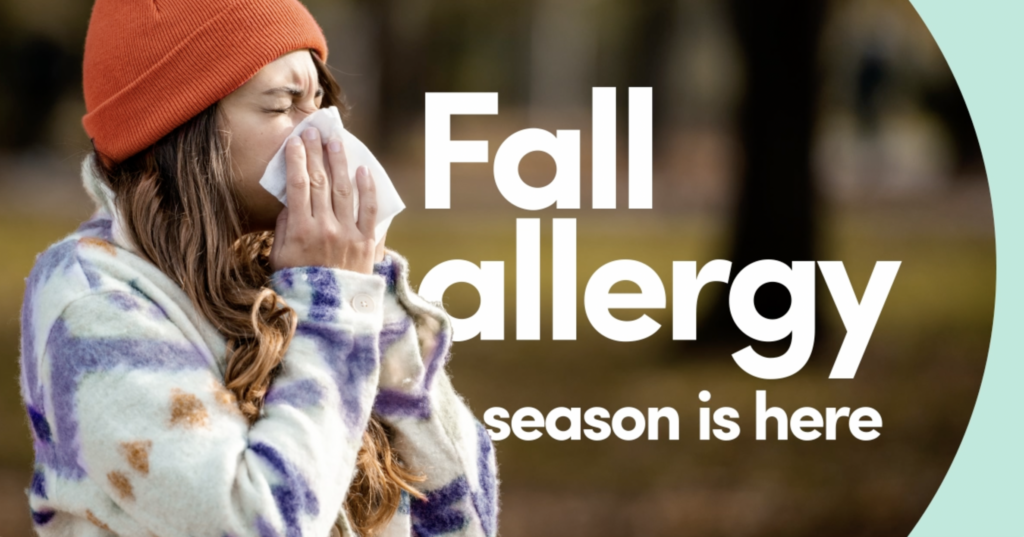
As the leaves begin to change color and the air grows crisper, many people eagerly anticipate the arrival of autumn and the cooler days. However, for others, fall brings an unwelcome guest—fall allergies. While spring allergies often take center stage, don’t to overlook the troubles that fall allergies can bring.
What exactly are fall allergies?
Fall allergies, also known as autumn allergies, occur when the immune system reacts to allergens commonly present during the fall season. The most prevalent types that trigger fall allergies are ragweed, mold spores, and dust mites. Allergens exist both indoors and outdoors, so limiting your exposure to them can be challenging. You could even be allergic to something and not even know it. Read on to identify common symptoms and treatment options.
Common symptoms for fall allergies
Sneezing: Frequent sneezing is one of the most common signs of fall allergies. It is your body’s way of trying to get rid of the allergens from your nasal passages.
Runny or stuffy nose: The inflammation triggered by allergens can cause your nose to become congested or excessively runny.
Itchy or watery eyes: Allergies can affect the eyes, causing itchiness, redness, and excessive tearing.
Coughing and sore throat: Postnasal drip can lead to persistent coughing and a sore throat.
Fatigue: Dealing with allergies can leave you feeling drained and tired.
Headache: Sinus congestion and pressure can result in headaches.
Are you wondering what the difference is between fall allergies, the flu and COVID-19? The Allergy and Asthma Network provides a comprehensive side-by-side breakdown of each.
Treatment for fall allergies and when to seek care
If you’re suffering from fall allergies, there are several steps you can take to alleviate your symptoms such as over-the-counter medications and minimizing your exposure to allergens by keeping windows closed, using HEPA filters, and regularly cleaning your home.
If over-the-counter remedies are ineffective or if your symptoms are severe, it is a good idea to schedule a visit with a provider to create a treatment plan. Remember that seeking timely medical attention and adopting preventive measures can make all the difference in how you can enjoy the cool, fall months.
About FastMed
FastMed is a North Carolina-based integrated healthcare company based in Durham, NC. It operates more than 50 locations in 34 counties providing urgent care and occupational health as well as primary care at select locations. FastMed accepts most insurance plans and is one of a few private urgent care centers also accredited by The Joint Commission. Learn more at fastmed.com.